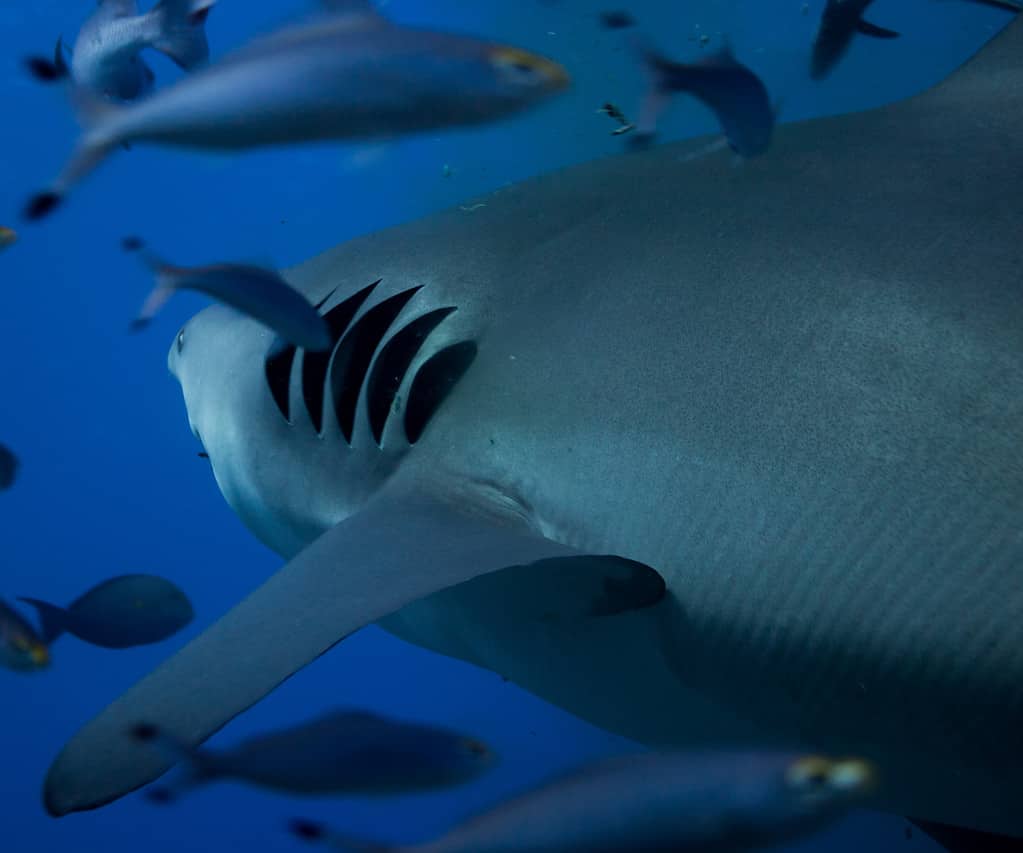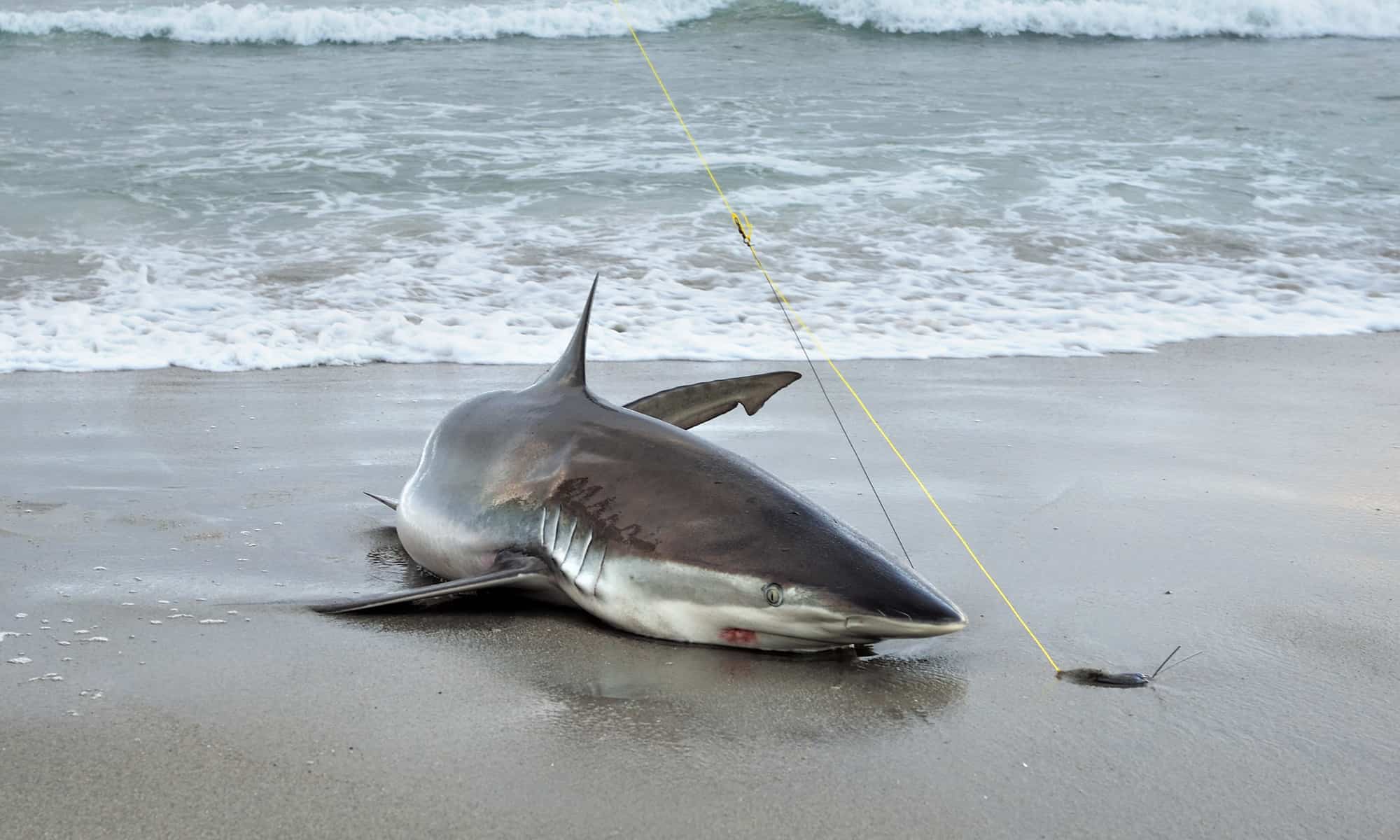Recently, a large shark washed onto the shore of a Florida beach. Thankfully, however, nearby beachgoers were available to help return the shark to the depths.
At least three beachgoers arrive on the scene to help a beached shark. As they attempt to tackle the dire situation by grabbing the shark’s tail and dragging it back out to sea, the scared shark thrashes, flashing super sharp teeth. However, now on its side and running out of time, with the help of a fourth beachgoer, the team returns to help the fierce fish. Although the shark continues to thrash in a desperate attempt to return to the water, the beachgoers continue to work to get the shark turned around and back into the depths. Ultimately, their dangerous but kind actions pay off. Once it gets its bearings, the shark is returned to the water, where it is able to swim away.
Why Is a Beached Shark in Danger?
For a shark, being stranded on the beach is a literal scenario of life and death.
There are two main breathing mechanics for sharks. For a select few, they are able to use specialized muscles to pump water over their gills. This allows them to continue breathing, whether they are still or moving. However, this isn’t true for the majority of sharks. Species without these muscles are unable to pull water. Because of this, they must be constantly moving in order to keep water rushing over their gills, thus keeping them breathing.
Take a look at this shark stranded on the beach. Most of the time, it is stranded, and its gills are completely exposed. This is especially true once it thrashes and ends up on his side for a few moments. Even when its gills are partially submerged in the ocean water, the waves don’t provide a constant enough motion over the gills.
Because of this, a beached shark is in danger because it is unable to breathe.

Most shark species need water continuously moving over their gills to breathe.
©iStock.com/Michael Gomes
Thank you for reading! Have some feedback for us? Contact the AZ Animals editorial team.








